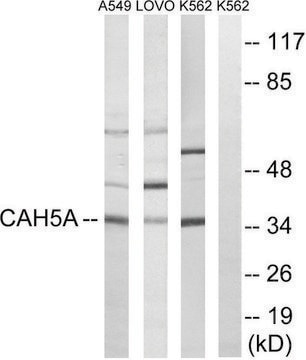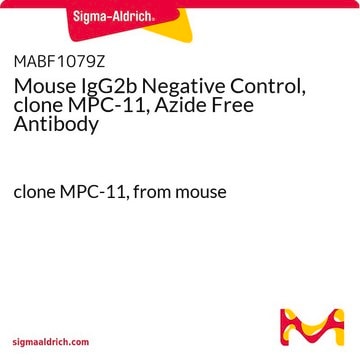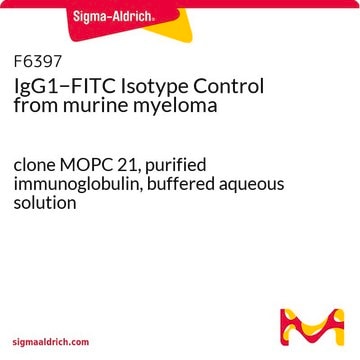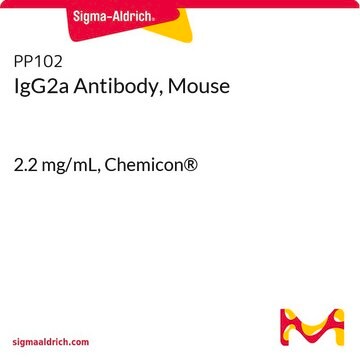SAB4700729
IgG2b Isotype Control murine
clone MPC-11, purified immunoglobulin, buffered aqueous solution
About This Item
Productos recomendados
biological source
mouse
conjugate
unconjugated
antibody form
purified immunoglobulin
clone
MPC-11, monoclonal
form
buffered aqueous solution
concentration
1 mg/mL
technique(s)
flow cytometry: suitable
immunocytochemistry: suitable
immunohistochemistry: suitable
immunoprecipitation (IP): suitable
western blot: suitable
isotype
IgG2b
shipped in
wet ice
storage temp.
2-8°C
General description
The specificity of staining by monoclonal antibodies to target antigens should be verified by establishing the amount of non-specific antibody binding. Especially at higher concentration (more than 15 μg/ml) the antibody staining usually has consignable background. To this end a non-reactive immunoglobulin of the same isotype is included as a negative control for each specific monoclonal antibody used in a particular immunoassay. The monoclonal antibody MPC-11 was generated against an epitope irrelevant for human, mouse, and rat material, and can thus be used for evaluation of the background staining that is caused by general nonspecific interactions between an mouse IgG2b molecule and the respective sample under the particular conditions.
Immunogen
Features and Benefits
Physical form
Disclaimer
Storage Class
12 - Non Combustible Liquids
wgk_germany
nwg
flash_point_f
Not applicable
flash_point_c
Not applicable
Certificados de análisis (COA)
Busque Certificados de análisis (COA) introduciendo el número de lote del producto. Los números de lote se encuentran en la etiqueta del producto después de las palabras «Lot» o «Batch»
¿Ya tiene este producto?
Encuentre la documentación para los productos que ha comprado recientemente en la Biblioteca de documentos.
Los clientes también vieron
Nuestro equipo de científicos tiene experiencia en todas las áreas de investigación: Ciencias de la vida, Ciencia de los materiales, Síntesis química, Cromatografía, Analítica y muchas otras.
Póngase en contacto con el Servicio técnico














